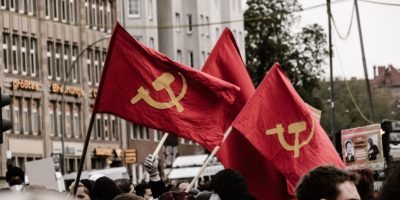It is important for all Asian Americans to understand the origins of the identity politics that we experience in today’s culture. This new Marxism uses the same principles of oppression employed by the likes of Mao Zedong but instead of focusing on economics, this brand of communism targets identity factors such as ethnicity. This fantastic podcast from James Lindsay of New Discourses provides a great starting point for educating yourself on the genesis of today’s woke cultural revolution.
By James Lindsay
“It’s still the goal to get to Communism by making people hate the life that they live, hate the society that they live in, and try to become a revolutionary force.”
The New Discourses Podcast with James Lindsay, Episode 49
Critical Theory evolved out of a pathological hatred. This hatred isn’t just what you expect. Yes, the Critical Theorists hated capitalism, like all Marxists, but they hated something new about capitalism compared against their predecessors. They hated that capitalism works. Critical Theory, the tool of neo-Marxism, therefore grew out of the pathological hatred of the fact that “advanced capitalism,” as they call it, which is protected against monopoly abuses, allows the working class to “build a better life.” Having a good life, you see, stabilizes them. It takes away their revolutionary will. It makes them love their society and want to maintain it. It, in their view, turns them conservative, and this is intolerable. Prosperous, functioning societies became the target of their bid for cultural revolution in the 1960s. To execute this revolution, though, they needed a new base for revolutionary energy, a new proletariat to awaken to Marxian revolutionary anger. Herbert Marcuse, architect of the New Left, found that new proletariat in identity politics, laying the ground in which the Woke Identity Marxism of today would eventually take root. Join James Lindsay in this episode of the New Discourses Podcast to hear it straight from the sources and to understand more about how we got to where we are today.
via New Discourses










